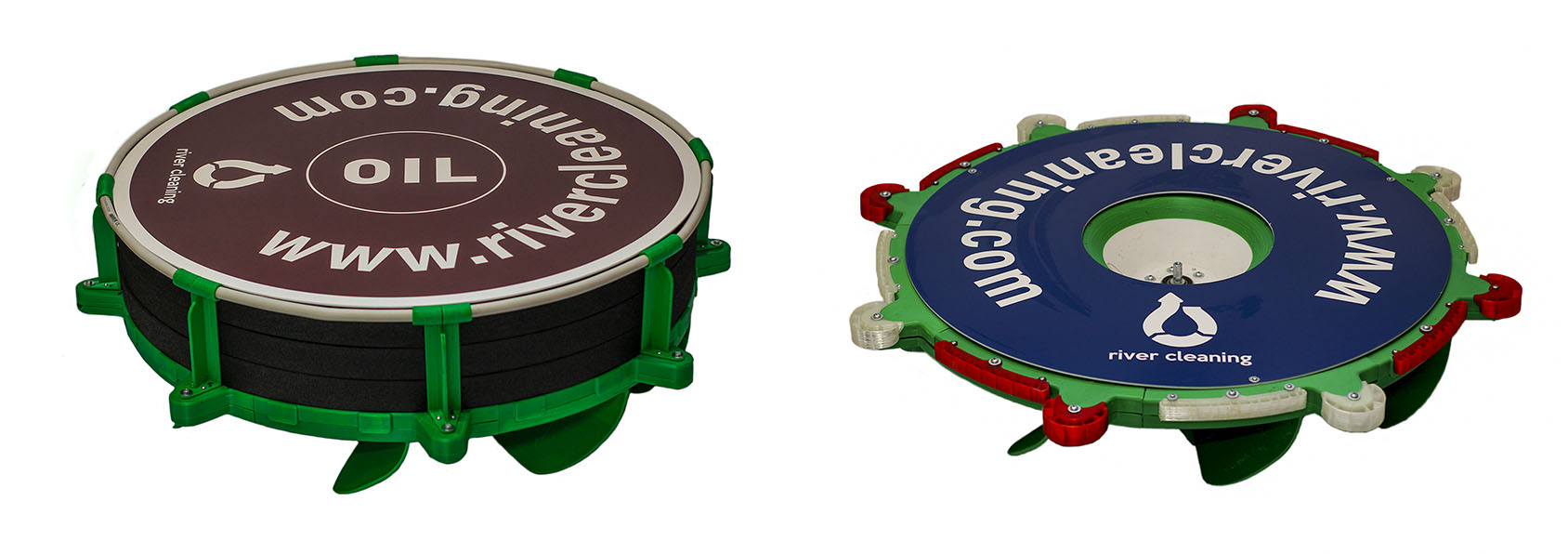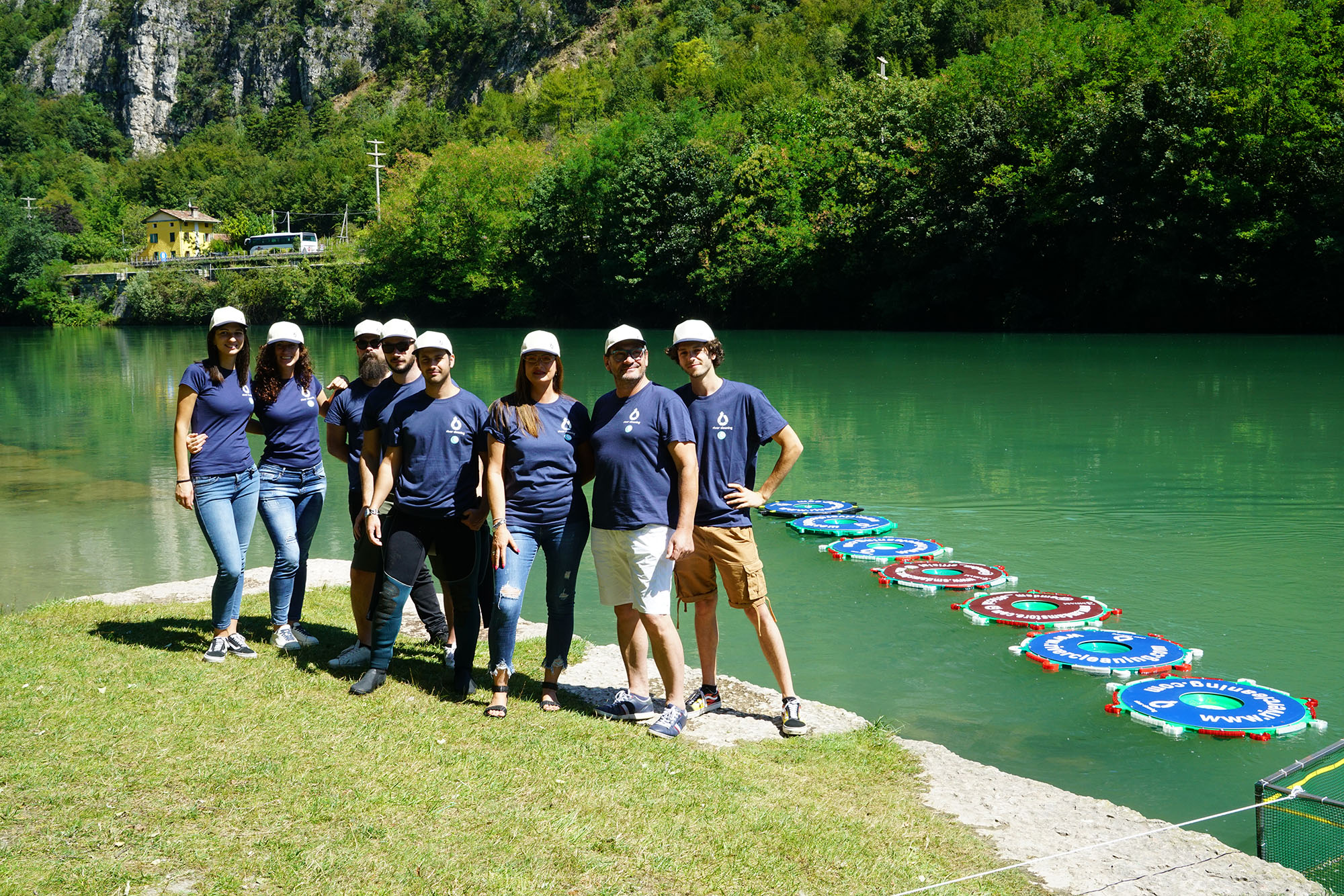Via la plastica dai fiumi!
La plastica è uno tra i principali problemi che coinvolge l’ambiente oggi, anche se già da molti anni l’emergenza ambientale sta interessando l’intero Pianeta.
Secondo i dati Unep, l’agenzia ambientale dell’ONU, ogni anno vengono riversate in mare circa 8 milioni di tonnellate di plastica ogni anno.
L’inquinamento delle acque è arrivato ad un punto tale che non si prova più nemmeno stupore nel sentir parlare della Great Pacific Garbage Patch, il più grande accumulo di spazzatura nell’Oceano Pacifico. Le sue dimensioni attuali variano da 700.000 km² a più di 10 milioni di km²… tale vastità non dovrebbe impressionare, ma piuttosto allarmare!
Questa grande isola si è formata a partire dagli anni ’80. I rifiuti galleggianti prodotti dall’uomo, in particolare i materiali plastici, giungono nelle acque dell’oceano e, trascinate da una corrente oceanica dotata di un particolare movimento a spirale in senso orario, si aggregano tra di loro formando un’isola galleggiante di spazzatura.
Si, avete capito bene: un’immensa isola di IMMONDIZIA si aggira nei nostri oceani.
E non è la sola. Una chiazza di spazzatura simile “naviga” anche nelle acque dell’Oceano Atlantico e altre sono già formate o si stanno formando (una prima mappatura delle isole di plastica negli oceani è stata eseguita nel 2014 e pubblicata su Proceedings of the National Academy of Sciences).
Ogni anno circa un milione di uccelli marini, centomila mammiferi e un numero inestimabile di pesci muoiono a causa dell’inquinamento dei mari causato da materie plastiche. Tutti i detriti galleggianti si fotodegradano fino a diventare brodaglia che finisce nello stomaco dei pesci… e risalendo poi lungo gli anelli della catena alimentare arriva fino all’uomo.
Uno studio tedesco pubblicato sulla rivista internazionale di ambiente “Environmental Science & Technology” sostiene che i principali vettori del trasporto delle materie plastiche verso gli oceani sono i fiumi, specialmente nei paesi in cui manca un’infrastruttura di gestione dei rifiuti ben sviluppata. Con il ritmo attuale, la quantità di plastica scaricata negli oceani aumenterà fino a quando i rifiuti di plastica supereranno letteralmente tutti i pesci nell’oceano.
Per questo, molti ricercatori sostengono che per dimezzare l’inquinamento degli oceani sia necessario migliorare la gestione dei corsi d’acqua.
Su come intervenire e in che modo agire nei fiumi prima che i rifiuti raggiungano il mare ci hanno pensato gli ideatori di RIVER CLEANING. La start up vicentina, vincitrice nel 2019 della terza edizione del contest “Dall’Idea all’Impresa Green” come migliore business idea in ambito verde, che si pone come obiettivo proprio quello di ripulire i fiumi.

Immagine concessa da River Cleaning
La rivoluzionaria ed efficace tecnologia studiata per raccogliere i rifiuti nei fiumi, oggi composta da 3 Brevetti PCT MODIALI, è stata sviluppata da Vanni Covolo, CEO e proprietario del brevetto River Cleaning, al quale lui e il suo team credono fortemente.
Il meccanismo è costituito da una serie di dispositivi galleggianti, posizionati in diagonale sul corso del fiume. Questo permette l’intercettazione dei rifiuti plastici in arrivo i quali, rimbalzati da un dispositivo all’altro, vengono accompagnati tramite un nastro trasportatore in un’area di stoccaggio sulla riva del fiume. Una volta riempito il container, viene fatta partire una segnalazione al centro raccolta che provvederà a ritirarlo e sostituirlo con uno vuoto pronto all’uso. Il sistema è stato progettato per richiedere la minima manutenzione possibile e per avere un impatto zero sull’eco-sistema: lavora in piena autonomia utilizzando la forza della corrente del fiume, 24 h su 24, 7 gg su 7, senza necessitare di energia ausiliaria. I piccoli mulini galleggianti vengono ancorati al letto del fiume in modo tale da galleggiare sempre sulla superficie dell’acqua e, a differenza di altri sistemi di pulizia delle acque, River Cleaning permette la navigabilità senza recare ostacolo neppure alla fauna ittica.
Il progetto non si è fermato al solo recupero del materiale plastico! Proprio in questi giorni, in occasione di Ecomondo (la fiera leader d’Europa sulle tecnologie verdi), è stato presentato River OIL, un nuovo e innovativo sistema per la raccolta di olii. L’inedito macchinario permetterà di ripulire i corsi d’acqua non più solo dalla plastica, ma anche dalle sostanze oleose.
Sempre attraverso una serie di dispositivi galleggianti e autonomi le sostanze inquinanti vengono intercettate a pelo d’acqua, filtrate e separate dall’acqua stessa. River Oil può essere integrato al già collaudato River Cleaning in un’unica diga mobile, ponendosi così come il sistema più all’avanguardia per la pulizia dei fiumi dai rifiuti galleggianti sia fisici che liquidi!
La soluzione eco-friendly apportata dal sistema ha incontrato il favore di diversi buyer che si occupano del recupero delle materie inquinanti nelle acque, non solo italiani, ma anche internazionali tra cui Egitto, India, Cina, Sudafrica, Israele, Perù e Turchia.
Al giorno d’oggi non è solo il fragile equilibrio della vita marina animale e vegetale ad essere minato dall’inquinamento terrestre e dalla concentrazione sempre più elevata di plastiche, e non, di ogni tipo.
Per non superare il punto di non ritorno, non basta più chiedersi come fare per fermare o rallentare tutto questo… dobbiamo agire!
Continuate a seguirci per essere sempre aggiornati sulle ultime iniziative green e sulle varie azioni svolte per aiutare il nostro Pianeta!
#WeTheFun #BusForFunBlog #BeGreen
 Immagine concessa da River Cleaning
Immagine concessa da River Cleaning
